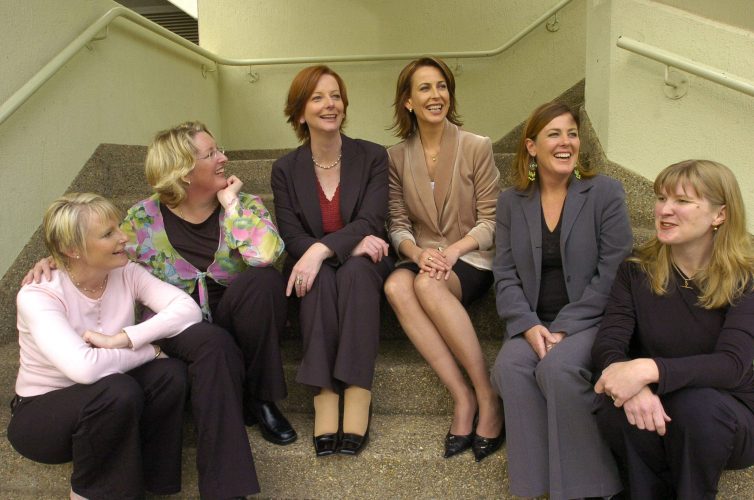There is a joke in our house about Janthima and her big feet. She’s a young Thai girl we sponsor through World Vision. And she’s constantly running out of footwear. Every time we get another of those pleading letters for an extra donation, we pay-up because we figure Janthima needs new shoes. We put it down to fast growing feet in the tropics.
Janthinma has been staring down at me, from her orange cardboard photo frame, for about five years. She lives on top of our fridge. When we moved house, she was the first of the family to be settled back in situ. And, unlike me, she hasn’t aged a bit, just faded a little.
Every now and then we’ve had progress reports about Janthima. Details about her school grades – always good; her favourite hobbies – sweeping and playing; and her aspirations – to be a teacher. She draws quite well and her colouring-in is not bad. In the past few years World Vision has sent updated photos, but we prefer the younger Janthima, whom we feel we know better. So the new ones get stuffed into a drawer – along with the progress reports, the koala stickers, the puzzles, the pencil case, the birthday cards and all the other glossy stuff World Vision posts us.
This year that kitchen drawer really started to bulge. Then suddenly, we received news from abroad that Janthima was leaving us. She no longer needed her Australian sponsors, or any more shoes. Or perhaps her feet had just stopped growing. It’s hard to know. But we didn’t need to ponder long how we’d redistribute the money put aside for extra sandals. Her replacement arrived in the mail, before we’d even packed Janthima away.
His name is Supalak. He’s darker than Janthima, has very big ears, no brother or sister, and he lives in Northern Thailand. Given his lack of siblings, we decided to keep Janthima on the fridge with him, to give the appearance of a family. And also because I think we weren’t ready to wave her goodbye – even if she is heading to Bangkok with a suitcase of shoes.
Before I stuffed Supalak’s paperwork and school report into the drawer, I noticed mention of his favorite game – soccer. You know what that means? Not just plenty of new shoes, for a young boy’s growing feet, but boots as well! Soccer boots.
We quickly got into the shoes routine with Supalak, and we’re happy to send the extra money. But there’s a problem: our kitchen drawer with World Vision stuff can barely close. It’s not as if all the goodies they send are on thin, recycled paper. They’re high production gloss. The stickers really stick. And the solidarity doll cards are lovely, but they won’t fold or bend.
That drawer has become a big, fat, embarrassment. I don’t want all this stuff. I’m happy to keep paying for shoes, or whatever else Supalak’s community needs, but I don’t want all the sponsorship trinkets that go with it. I don’t need badges, or kids drawings. Most of all, I don’t need thank-you letters.
So, here’s the thing: just as I now know there is no Father Christmas, I’ve worked out that there probably isn’t a Janthima, or a Supalak either. Or if there is, they certainly don’t know anything about me. And nor should they. Because in the scheme of things, I shouldn’t matter. I’m ashamed to think that some poor child in rural Thailand is made to sit down and write a letter, or draw a picture, to be posted to some foreign sponsor from another world.
A donation shouldn’t require a response. It’s not an exchange. Yet I don’t for a moment blame World Vision, or any other children’s charity, for this style of engagement marketing – where donors are hooked by a sense of personal connection with their needy young charge. My own involvement this year with an Afghan charity for orphans and widows has been a harsh lesson in the fickle nature of giving. I’ve been surprised to learn that many donors not only need acknowledgement of their generosity, but in fact demand it. They want photos, emails, and thank yous. They want hard evidence that their money is getting through, and that their patronage is appreciated.
One elderly chap told me he cancelled his sponsorship after writing a number of newsy letters to his child about life in Australia, but failed to receive any back. Issues of illiteracy and language hadn’t crossed his mind. What he really wanted was a gushingly, grateful pen-pal.
Giving is hard when we don’t receive. And that’s precisely why giving is good for us. Of course it’s nice to have our efforts or sacrifice acknowledged. But for a donor to depend on a display of gratitude, in order to unlock their generosity, is a gross distortion of the act of giving. Most importantly, it denies the giver the tremendous value to be found in unconditional trust.
I have great regard for World Vision chief Tim Costello. I trust him with my money. And always will.
(I just hope he makes sure Supalak get the boots in time for Christmas.)





